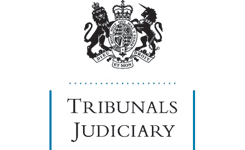|
Notes:
|
Reported as [2013] AACR 23 Work capability assessment – meaning of “specific disablement” – effect of alcohol and R(DLA) 6/06 on employment and support allowance assessments – whether points under Part 1 and Part 2 of Schedule 2 to ESA Regulations restricted to physical and mental causes respectively
As part of the conversion process from incapacity benefit to employment and support allowance (ESA), the appellant completed form ESA50. He stated on that form that he suffered from depression, anxiety and alcohol problems and claimed that this affected his ability to act independently. His GP confirmed the appellant’s medical conditions but observed that, unless under the influence of alcohol, he was able to perform the activities listed in Schedules 2 and 3 to the Employment and Support Allowance (ESA) Regulations which included learning simple tasks, initiating and completing actions, coping with changes and social engagement. A health care professional, a registered nurse, assessed the appellant and decided his behaviour was due to choice (not illness) and that none of the points scoring descriptors under Schedule 2 to the ESA Regulations applied to him. The Secretary of State subsequently decided the appellant was not entitled to ESA. The appellant’s appeal against that decision was dismissed by the First-tier Tribunal (F-tT) and he appealed to the Upper Tribunal. The issues before the Upper Tribunal included whether the Tribunal of Commissioner’s decision in R(DLA) 6/06 concerning a person with alcohol dependence applied to ESA cases and whether points could only be awarded under Part 1 of Schedule 2 to the ESA Regulations because of physical disablement (and similarly for Part 2 and mental disablement).
Held, allowing the appeal, that:
1. the statutory scheme was concerned with a person’s capability, or practical ability, to work, not with whether they wanted to work or whether work was available for them. In deciding whether a person had chosen not to work it was important for the F-tT to analyse properly whether that choice related to the alleged condition or the limitation alleged to be caused by it. It might well be that that analysis would lead to the conclusion that a choice leading to the condition was irrelevant and if the condition existed any limitation caused by it was not a matter of choice (paragraphs 14, 27(iv) and 64 to 65);
2. the person’s practical ability to work must have arisen from something wrong, untoward or atypical in their physical or mental condition – a specific disease or bodily or mental disablement. Therefore, in the particular statutory language governing ESA (and the sickness and incapacity benefits before it), the word “disablement” was being used to refer to the underlying cause of the functional limitation not the functional limitation (as in disability living allowance) (paragraphs 14 to 17);
3. in section 15A of (and Schedule 1A to) the Welfare Reform Act 2007 Parliament expressly recognised that a person dependent on drugs or alcohol may have limited capability for work because of that dependency and provided support for the conclusion that Parliament intended that alcohol dependency should fall within the phrase “specific disease or bodily or mental disablement”. This view was further supported by Section 18 and regulation 157 of the ESA Regulations (paragraphs 19 to 21 and 25 to 27);
4. the award of points for an incapability to perform an activity under Part I of Schedule 2 could be made where it arose from a specific bodily disease or disablement and from a mental illness or disablement (and vice versa): see KP v Secretary of State for Work and Pensions (ESA) [2011] UKUT 216 (AAC); [2012] ACR 5, KN v Secretary of State for Work and Pensions (ESA) [2011] UKUT 229 (AAC) and RM v Secretary of State for Work and Pensions (ESA) [2011] UKUT 454 (AAC) (paragraph 31);
5. although no causative link was made in regulation 19(5), care must be taken in identifying the cause of the person’s incapability to perform certain activities because a specific link to a physical or mental cause was sometimes present in the wording of the individual activities and descriptors in Schedule 2 to the ESA Regulations (paragraph 35);
6. the Employment and Support Allowance Regulations 2013 have, however, reinstated the position under the incapacity for work scheme, with points under Part I of Schedule 2 having to arise “from a specific bodily disease or disablement” and points under Part 2 “from a specific mental illness or disablement” (paragraph 36);
7. the word “specific” in “specific bodily disease or disablement” and “specific mental illness or disablement” means a disease or disablement known to medical science. It would not usually be an issue on appeal. However, if it were to arise for the first time at the F-tT then the tribunal must explain why it was an issue and allow the appellant adequate opportunity to address the point (usually an adjournment will be required). But normally the key and practical task for the F-tT was to work backwards from the activities and descriptors in Schedule 2 and 3 that are in issue on the appeal, assess the evidence in respect of each of them and award points (or not) accordingly (paragraphs 37 to 44);
8. in the absence of contrary evidence, the summary of the expert evidence in R(DLA) 6/06 could, and should be, adopted by decision-makers and tribunals in ESA cases as representing the mainstream medical view in respect of alcohol dependence and RA v Secretary of State for Work and Pensions (ESA) [2010] UKUT 301 (AAC) was wrong in its obiter comments and should not be followed (paragraphs 47 and 51 to 52).
The Panel remitted the case to a differently constituted First-tier Tribunal for rehearing in accordance with its Directions.
|
